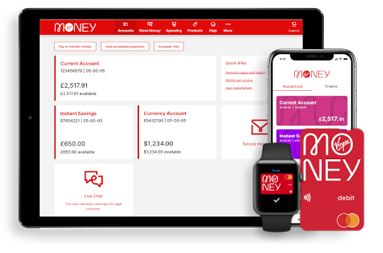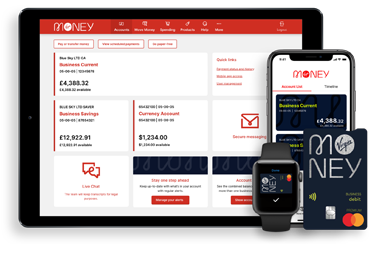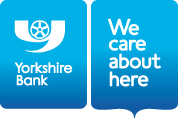-
Login
More Login links
Internet Banking
Business Internet Banking
Started an application?
Other services
Help
-
Register
More Register links
Internet Banking
Business Internet Banking
Other Services
- Our Products More business product links
Bank accounts
- Business current account
- Business choice account
- Switching business accounts
- Compare all business accounts
Savings accounts
Loans and Finance
- All Treasury solutions
Treasury solutions
Help and support
- Online Banking More online banking links
BusinessOnline
- Commercial More commercial business links
Business enquiries
Contact us about a general enquiry.
- Corporate and Structured Finance More corporate business links
Corporate and Structured Finance
SME Cashflow Finance
Unlock your cash flow potential. At Yorkshire Bank we take a flexible approach to business borrowing.
Lending is subject to status and eligibility.
- Our Sector Expertise More sector expertise links
How to avoid payment fraud online
< back to all business news articles
15/03/2019
The Internet has made business transactions and financial management more convenient than ever before. However, the same technology that has opened so many doors for small businesses has also created new ways for talented criminals to take advantage of them.


Why your business is a target
Small business owners don’t always have strong cyber protection, perform proper background checks on employees, monitor smaller amounts of money being stolen over a longer time frame, or have systems in place to prevent fraud in the first place. Criminals are well aware of these flaws in small business operations.
What’s at risk?
Criminals don’t hesitate about accessing credit card information, passwords, and business banking details. Fortunately, there are steps you can take to ensure your small business can manoeuvre the financial realm of the Internet without becoming a victim of payment fraud. Simple attentiveness and a cautious eye are your best protections.
Types of payment fraud
There are several different kinds of payment fraud for the small business owner to be aware of. Knowing what you are up against is half the battle, and keeping informed of new ways that scam artists are operating is essential to your business’s well-being. After all, the Internet and its many financial uses are ever evolving. So are criminals’ tactics for stealing your hard-earned money.
Here are some of the main threats to be aware of:
Cheque fraud Although there are many different ways that a criminal may commit cheque fraud, the most common methods rely on the ‘float’ technique. The float is the period between when the cheque is written and when it clears from the bank. A person writes several cheques in a short period, knowing there are insufficient funds to cover all of them. However, the float period doesn’t make the lack of funds obvious until the cheques begin bouncing.
Of course the easiest solution is to not accept cheques at all, and these are being used less and less.
Credit card fraud Credit card fraud is the most common trend of theft to hit small business owners. The most common way credit cards are illegally obtained is through identity theft. This usually occurs when someone illegally uses another individual’s personal information to apply for a credit card. However, this can also occur on a business credit card account.
Counterfeiting Counterfeiting is not a new way of committing payment fraud, but it can happen to you in many different ways. A person could attempt to pass fake notes cash and counterfeit cheques.
Scams Small businesses also fall victim to other kinds of scams. For instance, a scammer may earn the business’s trust by making a small purchase and paying faithfully. Later, a larger order will be placed, but payment will never be seen.
Another common scam is having a credit card transaction either reversed or the card reported stolen after a customer places an order. The scam artist will pay the shipping deposit through their bank. Essentially, they get the product without paying more than shipping costs.
How to protect your business
Staying informed is your first line of defence against becoming a payment fraud victim. While some of the fraudulent methods criminals use to take advantage of your business are well known, there are always new criminal geniuses working on more creative ways to take your money.
Make sure to link to any fraud protection news feeds to stay on top of any new scams. The following suggestions will go a long way in protecting your company against fraudulent payment methods:
- Use secure online banking.
- Perform credit and security checks when necessary on customers.
- Accept advance payments only, or even better, payment in full.
- Educate your staff on common fraud techniques and how they can spot them.
- Allow only a select few employees to accept payments.
What to do if you’re a victim
Even the most vigilant business owners might find themselves victims of fraudulent customers. One way to help yourself now is to view the information about how to report fraud our website, or call us on 0800 345 7365.
Relevant examples of suspected fraud are phishing, identity fraud, email fraud, spyware, and text message fraud. Report suspected fraud involving your bank account by performing the following procedure:
- Tell your bank manager.
- Give a detailed explanation of the incident.
- Include or attach copies of received emails, anti-virus logs, or anti-spyware logs.
While all businesses are at risk of payment fraud, especially with the growth of online financial management, small business owners are likely to feel the pinch much worse than their larger counterparts.
As stated, cheque and credit card fraud are the two most popular scamming methods attacking small business owners. Criminals are finding new ways to target business owners each day, such as with recent mobile payment fraud. As it’s hard to catch many of them, they won’t stop trying, and you shouldn’t stop fighting.
Next steps
For more information review these sites;
- www.ukfinance.org.uk/ which has a range of useful content on finance and fraud.
- www.cyberaware.gov.uk/ that has content to help you protect your devices, data and business.
- If immediately serious you can report to the Metropolitan Police here.
POSTED IN: Deals,Growth,Finance advice
SHARE
Related Articles
You are here: Business Banking > Business News > Articles
- About Yorkshire Bank
- About us
- Virgin Money UK PLC
- Media relations
- Careers

Internet Banking has moved
To log into Internet Banking you now need to use Virgin Money Internet Banking. You'll get the same great service and are able to access all your accounts.
Your log in details will stay the same and you can log in directly from the shiny new Virgin Money website.
Continue to Virgin Money Internet Banking
Go to the Virgin Money website
Be Alert
Never tell anyone a token 3 response code, even someone from the bank. You should only input these codes to our secure Business Internet Banking service when you’re sending and making payments. If anyone calls and asks for a token 3 response code or asks you to authorise a payment on the App for fraud checks, hang up and call us on 0800 085 2914 from another line if possible, remember the Bank will never ask you to disclose your security details.
Continue to Virgin Money Business Internet BankingYou can find impartial information and guidance on money matters on the “MoneyHelper” website.
Yorkshire Bank is covered by the Financial Services Compensation Scheme (FSCS), Find out more.
